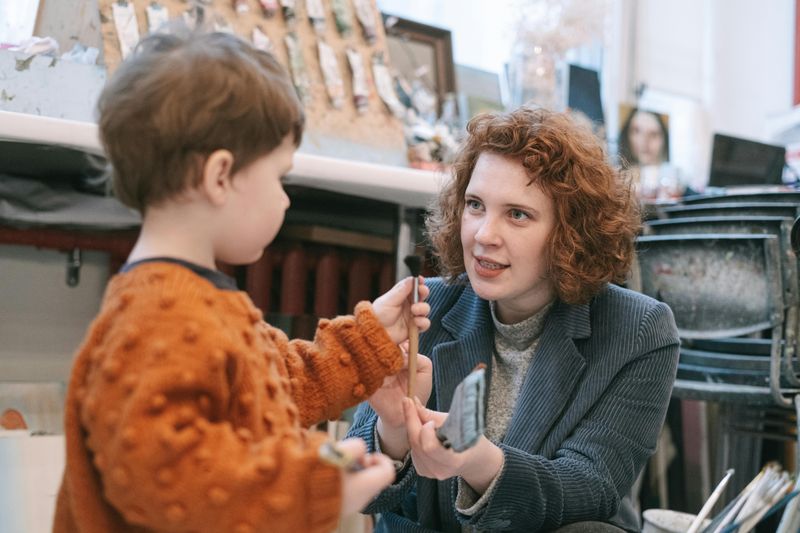13 Tips Every Single Parent Should Know Before Dating Again

Jumping back into the dating pool as a single parent comes with unique challenges. You’re not just looking for someone who clicks with you, but also someone who’ll be a positive presence in your child’s life. Finding the right balance between your parental duties and personal happiness takes careful thought and planning. These tips will help you navigate the sometimes tricky waters of dating as a single parent.
1. Make Sure You’re Really Ready

Healing from past relationships takes time. Before you create a dating profile or accept that dinner invitation, check in with your emotional health.
Are you seeking companionship because you truly want to share your life with someone new, or are you trying to fill a void? Your children can sense when you’re emotionally unsettled.
Take quiet moments to reflect on your motivations. Dating from a place of wholeness rather than neediness leads to healthier relationships for everyone involved, especially your kids who are watching and learning from your example.
2. Put Your Kids First, Always

Children thrive on stability and routine. When you start dating, maintain their schedules as consistently as possible to provide security during this transition.
Late-night texts and spontaneous dates might feel exciting, but your children’s needs should remain your priority. This doesn’t mean sacrificing your happiness – it means making thoughtful choices about when and how you date.
The right partner will understand and respect these boundaries. Remember that your dating decisions impact not just your life but the emotional wellbeing of your children who depend on you.
3. Be Honest With Your Children

Kids are surprisingly perceptive. They’ll notice changes in your behavior long before you introduce them to someone new. Age-appropriate honesty builds trust.
For younger children, simple explanations work best: “Mommy/Daddy is spending time with a new friend.” Teenagers might need more detailed conversations about your dating life. Whatever their age, avoid surprising them with a new relationship.
Open communication creates a safe space for them to express concerns or ask questions. When children feel included in the process rather than blindsided by it, they’re more likely to adjust positively to your dating journey.
4. Wait Before Making Introductions

Children form attachments quickly. The revolving door of dating partners can leave them confused and hurt when relationships end. Experts recommend waiting at least 3-6 months before introducing someone new to your children.
This timeframe allows you to evaluate the relationship’s potential longevity. Is this person kind, reliable, and genuinely interested in being part of a family dynamic? Do they respect your parenting choices?
Taking things slowly protects your children from unnecessary attachment and loss. When you do make introductions, keep them casual and brief initially – perhaps a park outing or informal lunch rather than an overnight stay.
5. Find Child-Friendly Dating Options

Dating as a parent often means working around soccer practices and bedtime routines. Look for dating opportunities that fit your existing schedule instead of constantly scrambling for childcare.
Lunch dates during school hours, coffee meetups during your child’s activities, or even video chats after bedtime can keep your dating life active without disrupting family time. Many cities now offer family-friendly events where single parents can mingle.
Online dating platforms specifically for single parents can connect you with others who understand your scheduling constraints and priorities. The right match will appreciate your creativity in finding time to connect.
6. Set Clear Boundaries From The Start

Healthy relationships require clear boundaries, especially when children are involved. From the first date, be upfront about your parenting commitments and non-negotiables.
Discuss your availability realistically – weekend mornings might be reserved for your kids’ sports events, while Wednesday evenings are dedicated family dinners. A partner worth keeping will respect these boundaries without making you feel guilty.
Boundaries also apply to physical affection displayed in front of your children and your partner’s involvement in discipline. Establishing these guidelines early prevents misunderstandings and creates a foundation of mutual respect as your relationship develops.
7. Watch For Red Flags

Your dating standards should be higher now that children are involved. Pay attention to how potential partners react when you need to reschedule because of a sick child or school event.
Someone who shows impatience, jealousy of time spent with your kids, or tries to compete with them for your attention is waving serious red flags. Notice how they speak about their own family relationships or previous partners with children.
Trust your instincts if something feels off, even if you can’t immediately identify why. As a parent, you’re not just protecting your own heart but also your children’s emotional safety and home environment.
8. Prepare For Mixed Reactions

Children’s responses to your dating life can range from excitement to outright hostility. Teenagers might act disgusted by the very idea of your romantic life, while younger children may worry about being replaced.
These reactions often stem from fear of change rather than dislike of your specific partner. Give them space to express these feelings without judgment. Reassure them consistently that your love for them is unchanging and that no new relationship will diminish their importance.
Family therapy can provide helpful tools if children struggle with adjustment. Remember that acceptance takes time – sometimes months or even years – especially for children still processing divorce or loss.
9. Don’t Rush Into Blending Families

Moving in together or marriage might seem like logical next steps in a serious relationship, but blending families requires careful consideration. Children need extensive preparation and gradual integration before such major changes.
Start with short, positive interactions like day trips or holiday celebrations together before progressing to overnight stays. Discuss parenting styles, household rules, and expectations thoroughly with your partner before combining households.
Many family therapists recommend at least two years of dating before blending families. This timeline may seem overly cautious, but the success of blended families often correlates directly with how carefully and slowly the transition was managed.
10. Maintain Your Identity Beyond Parenting

Between work, parenting, and now dating, it’s easy to lose sight of your personal interests and friendships. Yet maintaining your identity beyond these roles creates a healthier relationship model for your children.
Continue nurturing hobbies, friendships, and personal goals that have nothing to do with parenting or your new relationship. These outlets provide necessary balance and prevent you from placing too much emotional weight on a new partnership.
Children benefit from seeing you as a well-rounded person with diverse interests and connections. Your happiness and fulfillment outside of relationships teaches them valuable lessons about self-worth and independence.
11. Consider The Legal Implications

Dating as a single parent sometimes involves navigating legal considerations, especially if you share custody with an ex-partner. Review your custody agreement for any clauses about introducing new partners to your children.
Some agreements contain “right of first refusal” provisions requiring you to offer childcare to the other parent before leaving children with a new partner. Others may restrict overnight guests when children are present.
For serious relationships, consider consulting a family attorney about how remarriage might affect child support, custody arrangements, or adoption possibilities. Understanding these legal aspects helps you make informed decisions that protect both your relationship and your children’s wellbeing.
12. Be Prepared For Questions About The Future

As relationships become serious, children naturally wonder how new partners fit into their future. “Will we move? Will I have new brothers or sisters? Will they be at my graduation?” These questions reflect their need for security.
Answer honestly but cautiously, avoiding absolute promises about relationships still developing. “Right now, we’re enjoying getting to know each other” works better than making commitments you might not keep.
For older children, discussions about college funds, inheritance, or long-term financial planning may arise. These conversations, while potentially awkward, are important to address transparently with both your children and partner to prevent future misunderstandings.
13. Accept That Dating Takes Longer As A Parent

The reality of dating with children is that everything moves more slowly. Finding time for dates between work and parenting responsibilities means relationships develop at a different pace than they might have in your pre-parent days.
This slower timeline is actually beneficial. It allows you to truly know someone before they become integrated into your family life. The person who’s right for you will understand this pace and value quality time over quantity.
Patience becomes essential – both with yourself and potential partners. The investment of time upfront leads to more stable, thoughtful relationships that have better chances of success when children are involved.

Comments
Loading…